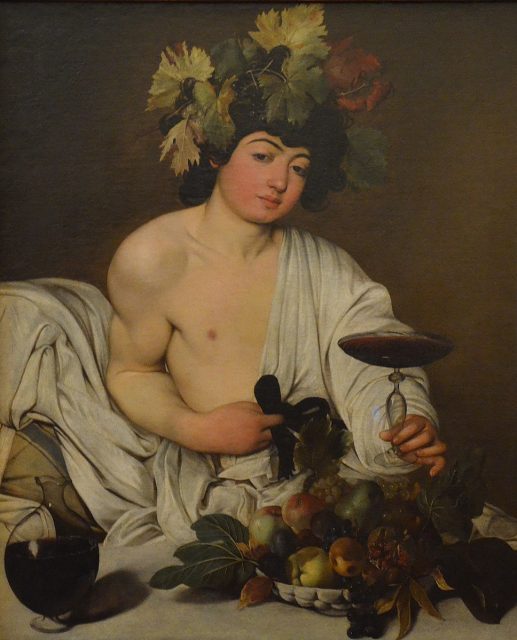This website uses cookies so that we can provide you with the best user experience possible. Cookie information is stored in your browser and performs functions such as recognising you when you return to our website and helping our team to understand which sections of the website you find most interesting and useful.
Vinitaly pits classic art against artificial intelligence
This year’s Vinitaly has shown that human emotion can still trump tech innovation in the wine world. Louis Thomas reports from the fair.

The Veronafiere has been a home away from home this week for two artworks from Florence’s Uffizi gallery, both depicting Roman wine god Bacchus: one by Guido Reni (c. 1620), and the other from Michelangelo Merisi da Caravaggio (c. 1598).
The inclusion of fine art at Vinitaly has not gone un-criticised, with some academics suggesting that it is unacceptable to have such works in a “commercial”, rather than an “intellectual” setting.
However, there is something praiseworthy about an event that puts cultural heritage at the centre – and given the queue to view the paintings, there is clearly an appetite for art, as well as wine.
Shifting from the Baroque to something rather more futuristic, a welcome dinner held by the Comitato Grandi Cru d’Italia at the Teatro Ristori was hailed by committee president Valentina Argiolas as a celebration of a “renaissance after difficult years”.
“Renaissance” was an interesting word to choose, as the evening was themed around whether artificial intelligence (AI) could end up displacing wine professionals and mark the death of wine writing and criticism as we know it.
The topic, which has become increasingly dominant in the news, was introduced by having a recording of an AI simulation compère the event.
The organisers noted that they were fortunate to have prepared the answers from ‘Mr. AI’ earlier last week, before Italy became the first Western nation to ban chatbot sensation ChatGPT over privacy concerns.
A video of Monica Larner, Italy reviewer for Robert Parker Wine Advocate, was shown in which both she and Mr. AI offered advice in a duel of expertise.
While Mr. AI’s answers to questions such as “what was the 2022 vintage like in Italy?” sounded accurate, if clearly an amalgamation of different resources, Larner’s, crucially, had the colour of experience.
Gabriele Gorelli MW then took to the stage to share his thoughts, remarking that while Skynet from The Terminator films is a fantasy, there is still an element of risk.
As for whether it could have been of assistance during his Master of Wine examinations, as ChatGPT recently proved to be for the Master Sommelier theory papers, Gorelli said: “I would have been glad to be helped by a reliable AI…But [in the MW course] we’re not tested on knowing things, it’s more holistic: why is it happening, not what is happening.”
Appearing over video call, New York-based wine critic Antonio Galloni remarked: “Ready or not, AI’s already here.” Possibly not a shock to an audience that was by that point familiar with the unsettling robotic tones of Mr. AI.
But he then reassured the audience of wine trade and media members that there was “no way” AI could become a substitute for wine writers, or winemakers: “AI may be brilliant if you want to make orange juice for a supermarket…but there are no shortcuts to making great wine.”
Precisely how AI can ‘taste’ wine, surely a requirement for winemaking, is a more complex issue.
It can predict how a wine might turn out based on weather and cellar factors, or be used in conjunction with chemical analysis (as was the case in a recent video from Konstantin Baum MW).
What AI offers is a sterile smoothie of information blended together.
Ask an AI to write about wine, and it can competently regurgitate what is already on the internet, but it cannot offer insight from lived experience.
Ask it to create an image of Bacchus in the style of Caravaggio, and, though it may be less temperamental than the artist himself, it will pale in comparison to Caravaggio every single time.
Both wine writing and art come from a context that AI cannot replicate. Simply put: it lacks that human touch.
There’s nothing to worry about, at least for now.


